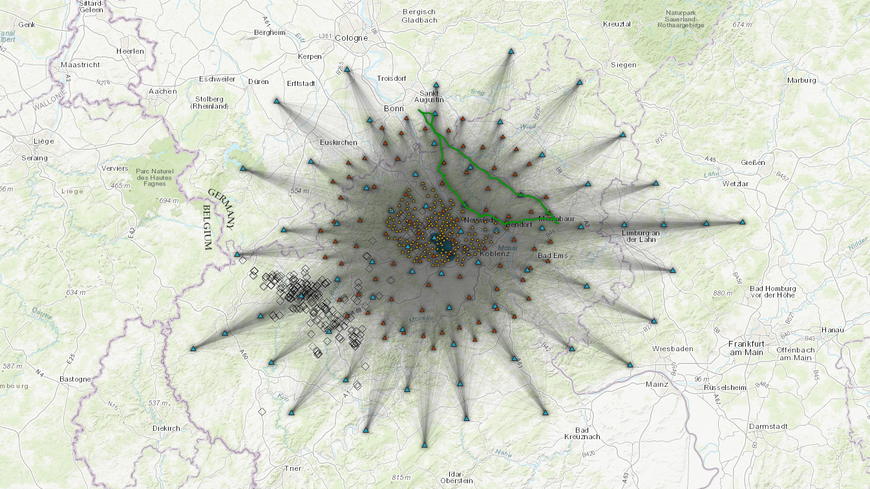DEGREE - Digital twin for assessing the exploration potential of geo-resources: Eifel geothermal depth anomaly
Geothermal energy can play an important role in the transition of our energy supply from fossil fuels to sustainable alternatives. However, the properties of the subsurface are only roughly known and the extraction of resources is therefore associated with risks. DEGREE will make a contribution here by bringing together multidisciplinary knowledge in a virtual digital laboratory that describes both the structure and the processes in the subsurface. The project is coordinated by Torsten Dahm (Section 2.1) and carried out in cooperation with Department 5 and university partners.
Seismological methods play an important role in the investigation of the subsurface structure. Based on the raw seismological data, higher quality data products such as earthquake locations or correlations of the environmental noise are used. We are developing digital tools to make this process easier and more sustainable. In particular, the calculation of correlation functions of environmental noise is a resource-intensive process that we will make more effective. For this purpose, a service is being developed that allows the noise correlation functions to be calculated directly in the seismological data center close to the data and the results to be made available to the seismological community via web services.

Time frame
- 01.03.2024 -28.02.2027
Principal Investigator
- Chr. Sens-Schönfelder (GFZ)
- T. Dahm (GFZ)
- W. zu Castell-Rüdenhausen (GFZ)
Stuff
- J. Lehr (GFZ)
Funding
- BMBF
Research Unit(s) (POF/MESI/GIPP)
Cooperation/Partner
- Prof. Dr. T. Meier (Christian-Albrechts-University Kiel, CAU)
- Prof. Dr. B. Kaus, Dr. A. Popov (Johannes Gutenberg-University Mainz, JGU)
- Prof. Dr. F. Wellmann (RWTH Aachen University, RWTH)





